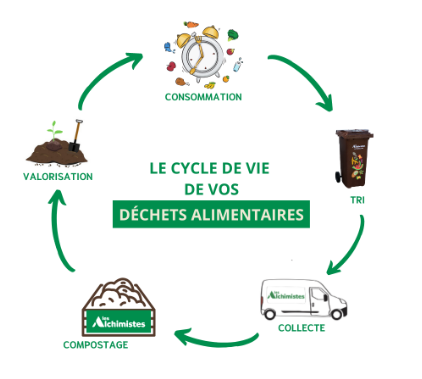Responsible waste sorting: we're all involved!
Optimized waste sorting is now in place on the Saint-Paul and Carnot campuses of our university.
A total of 51 collection points have been installed at Saint-Paul and 30 at Carnot (Annecy already has its own sorting policy).
They include 4 types of garbage cans:
- Paper/cardboard
- Metals and plastics,
- Non-recyclable waste
- Biowaste (which will be composted)
General Resources will collect glass and occasional wood waste separately. A specific collection point for electronic equipment has been set up in the IT department on Carnot and Saint-Paul.
To encourage use of the sorting bins, there are no longer any garbage cans in the classrooms. The employee garbage cans in the offices will remain, but will no longer be collected. Everyone is invited to sort their waste at the collection points, preferably every evening when they leave.
NB: If you have any questions, please contact Hamza Bachar hbachar@ucly.fr
Which waste goes in which garbage ?
Depending on your location on campus, UCLy provides up to 4 different types of garbage can. It's important that we all sort our waste correctly, and follow a few simple rules to ensure that the mistakes of a few don't derail the efforts of the many!
In the green biowaste garbage can
- Rotten fruit, apple cores, banana peels, citrus fruit (lemons, oranges, clementines, grapefruit, etc.)
- Unwrapped coffee grounds, paper-based capsules (excluding aluminum capsules)
- Tea bags (excluding the staple and provided the bag is made of natural material; paper, silk or cotton muslin, etc.).
- All leftovers and out-of-date foodstuffs (without packaging): cooked pasta, cooked rice including meat (with bones in small quantities), fish (with bones), eggs (with shell)...
- Dried flowers and plants...
In the blue garbage can Paper/Cardboard
- Paper (any color, even with paper clip or staple)
- Packaging, cardboard boxes
- Brochures, leaflets
- Newspaper, magazine, book (without exaggerating to keep the bin manageable)...
In the Plastic/Metal garbage can
- Plastic bottle
- Aluminum can (empty)
- Milk or juice carton
- Cup (cardboard or plastic)
- Touillette
- Expired yoghurt (empty) and lid
- Plastic or aluminum packaging (clean, no bio-waste).
- Polystyrene food tray (clean)
In the black non-recyclable garbage can
- Paper tissues (their presence pollutes the flow of materials to be recycled)
- Wipes, paper towels (even when clean, paper towels are full of organic or chemical products).
- Unemptied food packaging (cardboard or plastic)
- Other non-recyclable waste.
Collection days are as follows:
- Non-recyclables: Monday, Wednesday and Friday
- Paper, metal and plastic: Tuesday and Thursday
- Biowaste: Tuesday evening and Friday evening.


